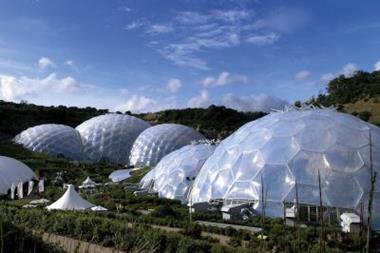Senior decision-makers believe the sector has a responsibility to address environmental sustainability
A new utilities industry report found senior decision-makers believe the sector has a responsibility to address environmental sustainability.
Steve Blackwell, strategic utilities consultant and author of the utility industry sector report concluded environmental responsibility will provide the UK utilities sector with an opportunity to redefine the way it approaches its business offerings and customer relationships.
Blackwell said: “While the market is delivering right now, there is an increasing belief that things can’t continue as they are. Environmental sustainability will have a marked impact on the medium to long-term decisions of utility companies. There is no way the sector can ignore the debate on climate change. These leaders are beginning to appreciate the size of the challenge, but still wonder whether government really does.
“However, it appears that under current policies, Britain will miss the EU's 2020 target of 20% energy from renewables by a long way. Captains of the utilities sector can therefore recognise the industry is in a prime position to build secure and sustainable corporate social responsibility practices and provide innovative solutions for customers that will not only help save energy, but also catalyse restructuring.”
The report also showed it was a widely-held view that reductions in energy consumption would be achieved if customers had real-time consumption data from smart metering available to them on an on-going basis.
“Utilities are driving down cost through consolidation of the systems that support their day to day operations. Their customers will ultimately benefit once utility companies and associated suppliers take the necessary wide-ranging action to implement innovative technology...The pay-off will come not only be to the person billed, but also to the industry as it is seen to better manage crucial, scarce resources and help save the planet.
Paul Clarke, director of consulting for Manufacturing Distribution Industries, HP UK
Blackwell added: “Utilities leaders recognize that processes can be streamlined through IT innovation. One area where consumers and companies can help to reduce the carbon footprint is with the introduction of pioneering technology solutions – as witnessed via the emergence of smart metering. It gives customers the opportunity to decrease their consumption if they know exactly what quantities of utility services they are using. They can then make well-informed decisions. ”
Paul Clarke, director of consulting for Manufacturing Distribution Industries, HP UK, said: “Power used by utilities themselves to run their IT is increasingly being scrutinised, from fewer consolidated data centres running virtualised applications on as few energy-efficient blade servers as possible, right through to modern technologies being deployed from desktops and monitors. With 50% of data centre power typically being used to cool the equipment, there is clearly scope to significantly reduce power usage if you have fewer data centre buildings, with fewer servers, being cooled through HP’s Smart Cooling technology. In retail, the green imperative is enabling utility companies to make real market differentiation. IT energy efficiency can play a part of this too.
He concluded: “Utilities are driving down cost through consolidation of the systems that support their day to day operations. Their customers will ultimately benefit once utility companies and associated suppliers take the necessary wide-ranging action to implement innovative technology…The pay-off will come not only be to the person billed, but also to the industry as it is seen to better manage crucial, scarce resources and help save the planet.”
The report, commissioned by Hewlett-Packard (HP), analysed key areas including: political and economics issues highlighted by the energy sector review, ownership and consolidation, regulation, smart metering, leadership and outsourcing.



















No comments yet